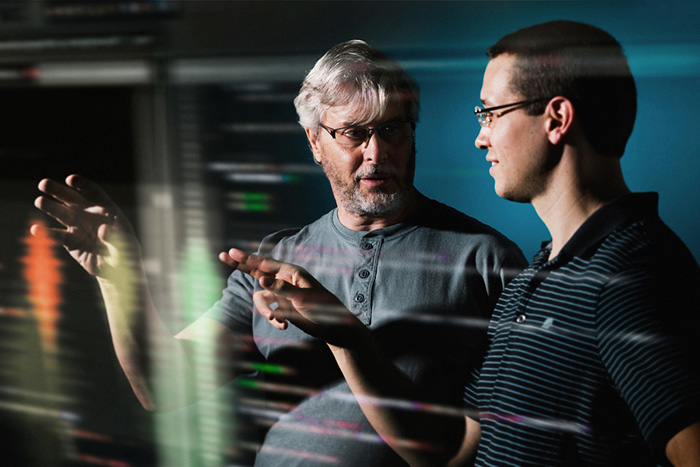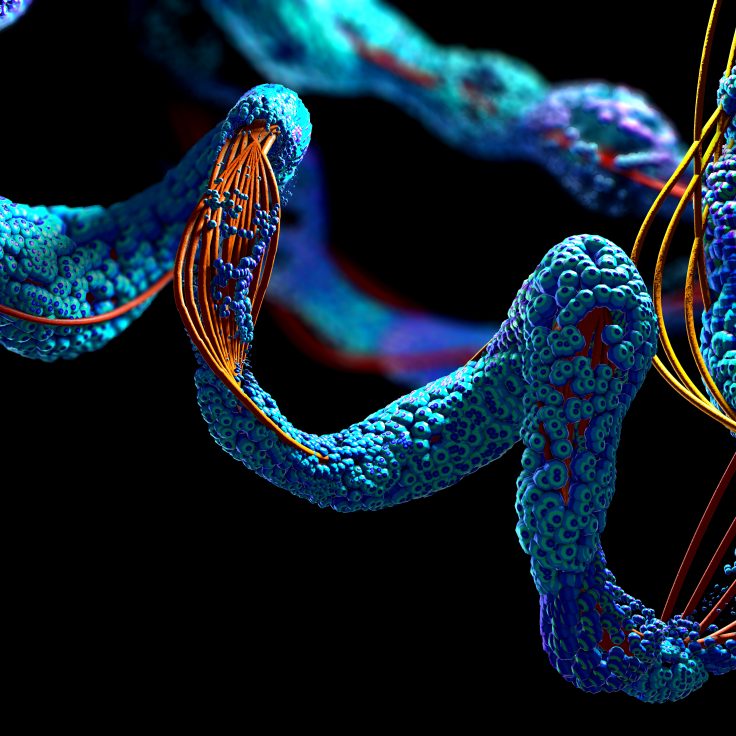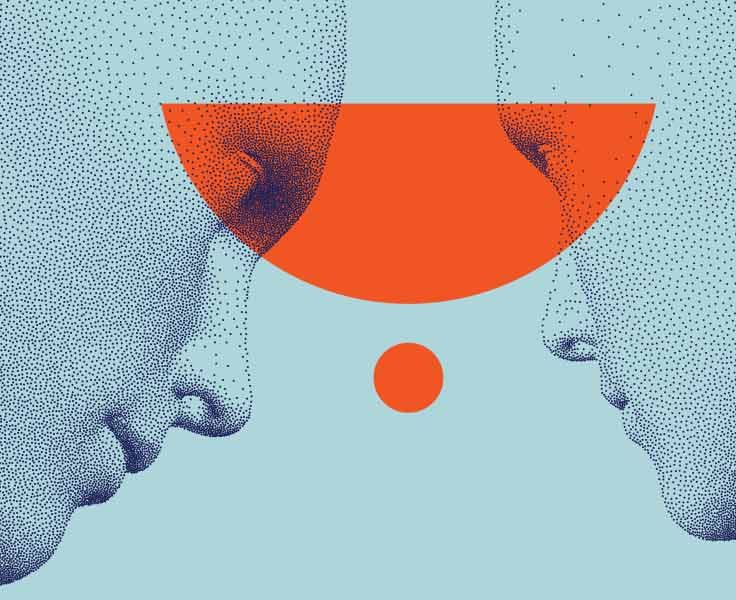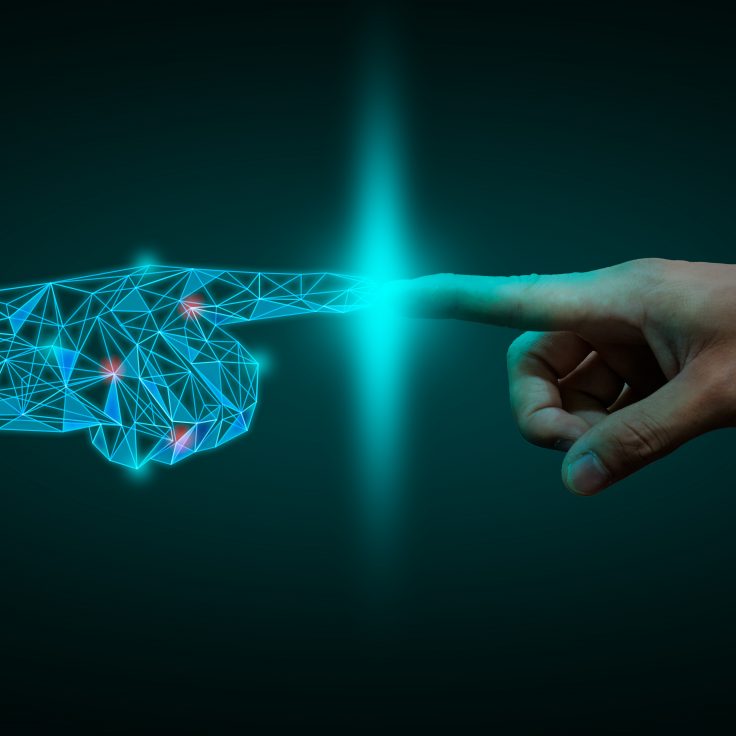
Adrian Roitberg and Justin Smith, PhD '18. (Photo by Bernard Brzezinski)
Best of Both Worlds for Drug Discovery
AI software developed by UF chemists opens the door to more effectively fight disease
It used to be that chemists using computational methods to identify molecules for use in medicine had to choose between accuracy and speed. With software developed in the lab of UF chemist Adrian Roitberg, though, they now can have the best of both worlds — and it’s opening the door to faster interventions against diseases.
Through machine learning, Roitberg and his team trained a neural network to mimic complex quantum chemistry to understand a molecule’s energy and the forces working on it. These characteristics are essential to determining whether a molecule is a good candidate to treat or cure diseases, but nailing them down was traditionally highly time-consuming.
With the software, researchers can plug in massive datasets and get instant results that Roitberg’s team has found to be just as accurate as traditional methods. “I would get the same answer in 7 milliseconds instead of years,” he said.
Major players in pharmaceuticals and biotech, such as Merck and Genentech, have already used the system. Its applications don’t end at drug discovery. The software can also determine how molecules crystalize, which will help identify new materials for use in technologies such as LED televisions.
Roitberg believes the future of chemistry lies in quickly and accurately probing large datasets through methods like machine learning. Quoting a common refrain in his field, he said, “AI will not replace chemists, but chemists who know how to use AI will replace those who don’t.
More stories about artificial intelligence from the fall 2021 issue of Ytori Magazine.


